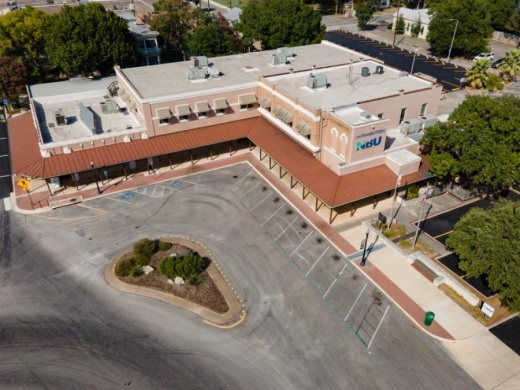NBU Chief Executive Officer Ian Taylor and Chief Financial Officer Dawn Schriewer will go before City Council on Oct. 12 to present a rate increase plan that would go into effect Nov. 1 if it is approved after a second reading Oct. 26.
The plan proposes increasing water rates, wastewater rates and electricity rates each year through FY 2022-23.
Water rates would increase by 7% in FY 2020-21, by 8% in FY 2021-22 and by 8% in FY 2022-23. Wastewater rates would increase by 16.5% in FY 2020-21, by 13% in FY 2021-22 and by 13% in FY 2022-23.
Lastly, electricity rates for delivery and customer charges would increase by 5% in FY 2021-22 and by 10% in FY 2022-23. Customers can expect overall 1.3% and 2.6% increases in their electric bills for FY 2021-22 and FY 2022-23, respectively.
Rate increases would help NBU to comply with Texas Commission on Environmental Quality requirements and to construct pipelines and other infrastructure to continue providing safe and reliable water to the community, Taylor said.
Over the next five years, NBU plans to invest $587 million into over 70 capital improvement projects, including expanding wastewater treatment plants, installing new water storage tanks and repairing aging electric infrastructure.
In addition to increased rates, the water supply fee charged by 1,000 gallons of usage will increase by $1.05 in FY 2020-21, by $2.49 in FY 2021-22 and by $2.79 in FY 2022-23. In an effort to mitigate costs for customers, those who use 7,500 gallons or less of water each month will not have to pay a water supply fee, Taylor said.
“What we're seeing is that the folks who had the largest increase in their utility bill are the folks that we're using more than 25,000 gallons, a month and that's about 5% of our customers,” Taylor said. “By and large, the cost will be shifted to landscape irrigation, to lawn watering. And the more you use the more will cost.”
As an example, Taylor said that because summer 2020 was hotter and drier than the summer of the previous year, some customers saw raised water costs as usage increased beyond the 7,500-gallon limit for residential essential use, as determined by NBU.
NBU plans to roll out a Comprehensive Utility Bill Management Plan in March 2021 to provide bill analysis, conservation education and energy and water use assessments for customers.
“At the heart of it all is putting services and tools and also information in the hands of our customers,” Taylor said. “We need to manage water supply and do it responsibly.”





